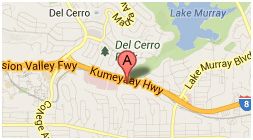How Effective Is a No-Needle, No-Scalpel Vasectomy?

If you’re considering getting a vasectomy, you’re likely aware that the procedure is a low-cost, low-risk method of permanent birth control that is far more convenient than temporary or single-use forms of birth control.
You might already know that vasectomies overall are 99% effective. What you may not know, however, is how a no-needle, no-scalpel vasectomy differs from a traditional procedure and whether the procedure is effective.
What Is a No-Needle, No-Scalpel Vasectomy?
In traditional vasectomies, a needle injection is used to deliver local anesthetic. In a no-needle vasectomy, the anesthetic is delivered with a “hypospray,” numbing the area instantly.
A no-scalpel vasectomy streamlines the process as well. During the traditional procedure, the surgeon uses a scalpel to make incisions in the scrotum, exposing the vas deferens tubes, which are then cut, tied, and returned to the scrotum before suturing.
The no-scalpel method is less invasive. With this procedure, the vas deferens on each side of the scrotum are located prior to the surgery. A tiny puncture, rather than the incision, is created to lift the vas deferens tubes out to be cut, tied, and returned to the scrotum. No scalpel is used to cut the genitals open, and the puncture is so small that no stitches or sutures are required.
What Are the Success Rates of No-Needle, No-Scalpel Vasectomies?
With no-needle vasectomies, although the method is different the results are the same.
A no-needle, no-scalpel vasectomy is an extremely safe and effective procedure, with success rates of more than 99%. Furthermore, these vasectomies—as with traditional procedures—eliminate the potential for human error that comes with temporary alternatives, such as a broken condom or a forgotten birth control pill.
With any kind of vasectomy, it’s important to know that the male will not be sterile immediately after the procedure. The male’s semen needs to be tested for traces of sperm within the subsequent several months to ensure that the procedure was effective.
What Should I Ask My Doctor About No-Needle, No-Scalpel Vasectomies?
What’s important is the experience and accreditation of the doctor performing the procedure. Your surgeon (or surgeon’s clinic) should be able to answer these questions:
- Are you board-certified? If so, what is your board certification?
- How many vasectomies have you performed?
- How many vasectomies do you perform each year?
- What is your medical background? What areas do you have training in? (Ideally, urology and/or microsurgery.)
- What are your clinic’s vasectomy success rates?
- What is your availability post-procedure?
Learn More
If you’d like to learn more about the no-needle, no-scalpel vasectomy, or if you have questions about whether it’s the right procedure for you, get in touch with our office today.


